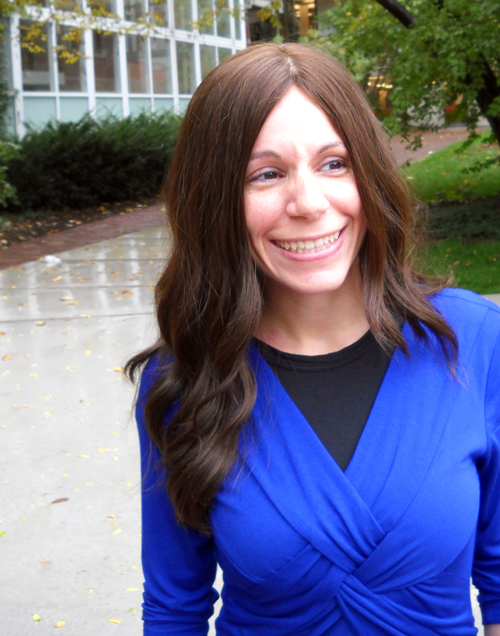
The “dark figure” of crime: That’s what sociologists call the gap between official and actual crime rates in a community. The “dark figure” looms when crimes go unreported or undiscovered – and it’s often more shadowy within cultural and religious groups in Canada.
Helping to dispel those shadows among Orthodox Jews is Guila Benchimol’s goal. As a member of Toronto’s Orthodox Jewish community, she’s just begun her PhD with Prof. Myrna Dawson in U of G’s Department of Sociology and Anthropology.
The entire Jewish community numbers more than 180,000 people in the Greater Toronto Area. Two-thirds of them live along the Bathurst Street corridor between Dufferin Avenue and Yonge Street.
By learning more about crime and crime rates among Orthodox Jews, she hopes to aid victims, build partnerships between that community and “outside” services, and focus some light on that dark figure.
She also hopes to help other often-insular groups facing the same issues. “Take out the words ‘Orthodox Jewish’ and put in another group name and it’s the same problem,” she says. “As unique as we think we are, it boils down to the same issues and the same fears.”
Tight-knit communities often feel threatened by outsiders. When trauma such as crime occurs, the instinct is to circle inward, says Benchimol. Insiders may hesitate to reach outward and may leave decisions in the hands of an authority within the group, such as a rabbi. Incidents might go unreported or be told in ways that expose gaps.
During her MA — also completed with Dawson — she looked at the case of an Orthodox Jewish man convicted of killing a nine-year-old boy in 2011 in New York City. She wondered why certain details in news accounts between the mainstream and Orthodox Jewish press consistently varied.
She realized that the discrepancies were worth exploring for what they revealed of the community. Her study will include interviews with rabbis and other leaders as well as informal community helpers.
She will also talk to cultural brokers helping to link the Jewish community and outside services.
Crime victims need allies, trusted authorities and brokers to gain access to services, says Benchimol.
Dawson says her student’s project meshes with her own studies of social and legal responses to violence within communities. “Her work should help facilitate better communication between these groups and the supports available to them, which will enhance violence prevention,” says Dawson.
Benchimol stresses that her study is not about “authority-bashing” but about improving accountability. In a smaller community, perpetrators and victims often meet. “You see them at the grocery store, synagogue. They’re constantly being re-victimized.”
She hopes that, besides helping to strengthen the grassroots, her project will help improve policymaking.
“It’s difficult to see injustice not being addressed,” says Benchimol, particularly when events affect people you know in a tight-knit community.
Close to home, she aims to improve life for today’s youngsters, including her daughter and her husband’s three children.
Benchimol lives with her family around Bathurst Street and Lawrence Avenue in Toronto. “I’m able to turn what I know about the community and what I’m studying into each other.”
She completed justice studies at the University of Guelph-Humber and volunteered at the Barbara Schlifer Clinic in Toronto with women leaving abusive relationships.
She did her MA in criminology and criminal justice policy with Dawson at Guelph.
For a decade, she taught Jewish studies at a Toronto high school.
Benchimol returned to her own studies as a single mom at age 28. “This is like my second career.”
She’d planned to put some distance between her PhD studies and her home turf in order to remain more objective. But members of her MA thesis defence committee were keen to learn more about her insider role. “You’re not just talking about the place, you’re living it,” they told her.
This year, Benchimol received a Wexner Graduate Fellowship from the Wexner Foundation for academic excellence and leadership potential in the North American Jewish community. She was the only Canadian recipient among 22 students selected from several hundred applicants.